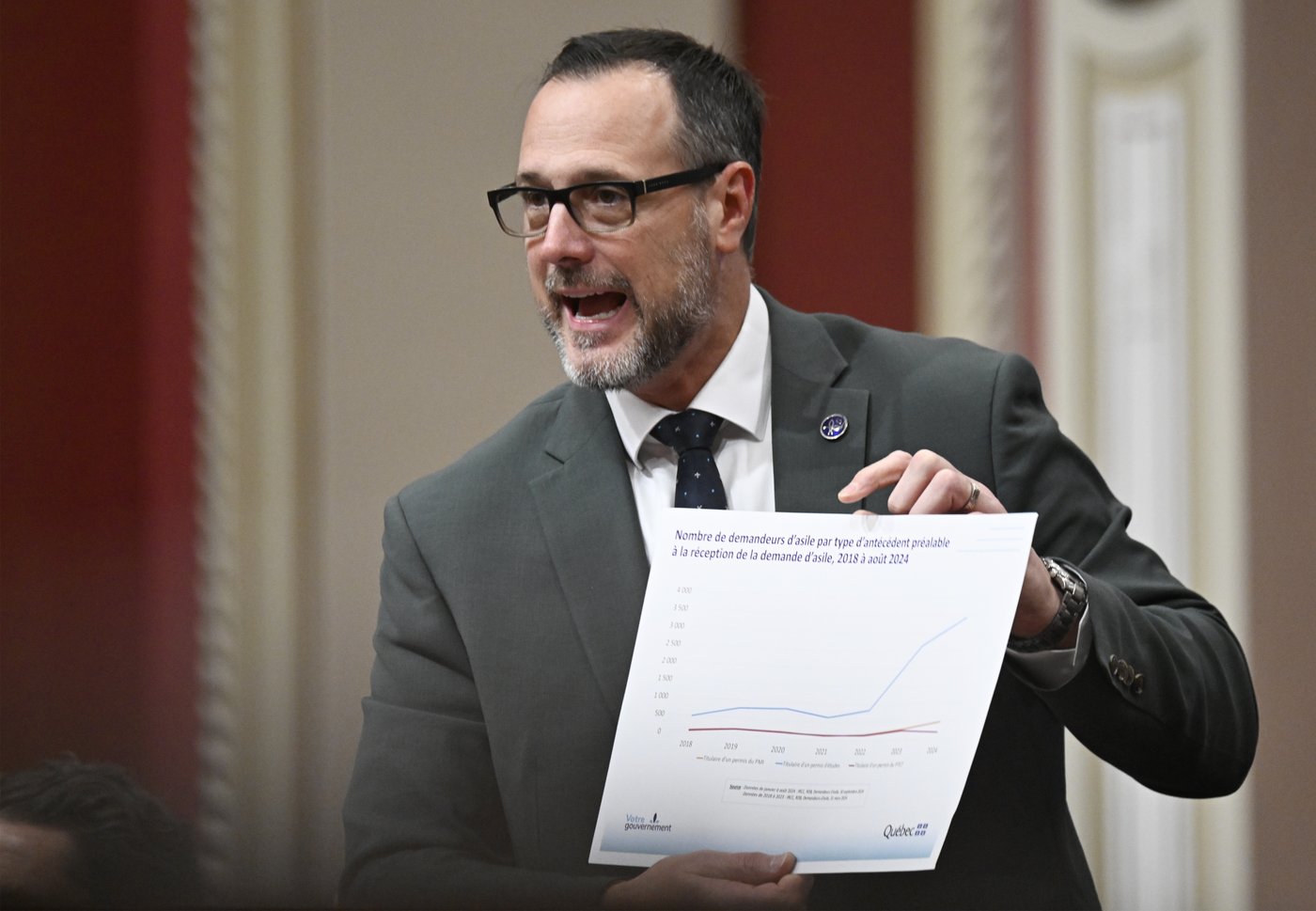Elevate your local knowledge
Sign up for the iNFOnews newsletter today!

QUÉBEC — Despite years of calling for Ottawa to cut the number of non-permanent residents in the province, Quebec now says the federal government is “playing a dangerous game” in its move to slash temporary immigration.
Immigration Minister Jean-François Roberge said Thursday the federal government’s efforts to cut temporary foreign workers have left businesses in many regions of Quebec in a “deplorable” situation.
“Ottawa is creating an emergency,” he told reporters in Quebec City. “I don’t understand what they’re thinking.”
His comments mark a change in tone for a government that has repeatedly demanded action from Ottawa to reduce temporary immigration to Quebec. Premier François Legault has said non-permanent residents are putting a strain on housing, health care, education and the French language.
But in recent months, Quebec business owners and industry groups have sounded the alarm about new federal limits on the temporary foreign worker program, warning they could have catastrophic consequences. Roberge echoed their concerns on Thursday, saying there’s a “crisis” in Quebec’s regions.
The immigration minister said he wants to see fewer asylum seekers and other non-permanent residents under federal jurisdiction. But he said his government never called for cuts to the temporary foreign worker program.
“We don’t want to cause businesses to close,” he said. “We don’t want to impoverish Quebec and its regions.”
Roberge unveiled his immigration plan for the province on Thursday, which includes moderate reductions to permanent immigration levels. The government is targeting 45,000 new permanent residents annually over the next four years, down from an anticipated 61,000 this year.
Roberge had been considering deeper cuts, to as few as 25,000 permanent residents per year. But he said the federal government’s refusal to relax its rules on temporary foreign workers means Quebec has no choice but to try to give permanent status to some workers who would otherwise have to leave.
“Ottawa is lighting a fire,” he said. “I have to grab a fire extinguisher.”
Last year, the federal government reinstated a 10 per cent limit on the number of low-wage temporary foreign workers a company can hire, after the limit was increased in 2022 to address labour shortages. Roberge said Quebec has asked for a “grandfather clause” to allow workers already employed in Quebec to stay, but to no avail.
During committee hearings last month, industry groups said the new limit is having a devastating effect on businesses that rely on foreign workers. “These political decisions risk damaging several sectors of Quebec’s economy … and jeopardizing businesses that are already under strain,” said Véronyque Tremblay, president and CEO of an association representing the hospitality industry.
In this week’s budget, the federal government said new temporary foreign worker arrivals have fallen by about 50 per cent this year. It also said new international student arrivals are down 60 per cent compared to 2024, thanks to new caps on study permits. The budget announced plans to further slash temporary immigration, including by cutting the number of international students the government aims to admit next year by half.
The Quebec government has also taken steps to control international student numbers by passing a law last year that allows it to set foreign student quotas at colleges and universities. But on Thursday, Roberge said his government merely wanted to “stabilize” international student enrolment. “Ottawa is playing a dangerous game,” he said.
Quebec’s immigration plan targets a 13 per cent reduction in temporary foreign workers and international students by 2029 compared to 2024, largely in Montreal and Laval, Que.
Statistics Canada says there are approximately 562,000 temporary immigrants in the province, but Quebec says two-thirds of those are the responsibility of the federal government, including asylum seekers.
By 2029, the province wants 77 per cent of people selected for permanent residency status to have an intermediate level of spoken French, and for 65 per cent of them to be people already living in Quebec.
The Quebec employers council denounced the province’s plan on Thursday, calling for the permanent resident target to be raised to 70,000 per year. “Maintaining the cap at 45,000 means turning a blind eye to the facts,” said president and CEO Michelle Llambías Meunier.
“Quebec simply does not have enough workers to support its growth, public services and economic ambitions.”
This report by The Canadian Press was first published Nov. 6, 2025.
— By Maura Forrest in Montreal with files from Thomas Laberge in Quebec City
Want to share your thoughts, add context, or connect with others in your community?
You must be logged in to post a comment.